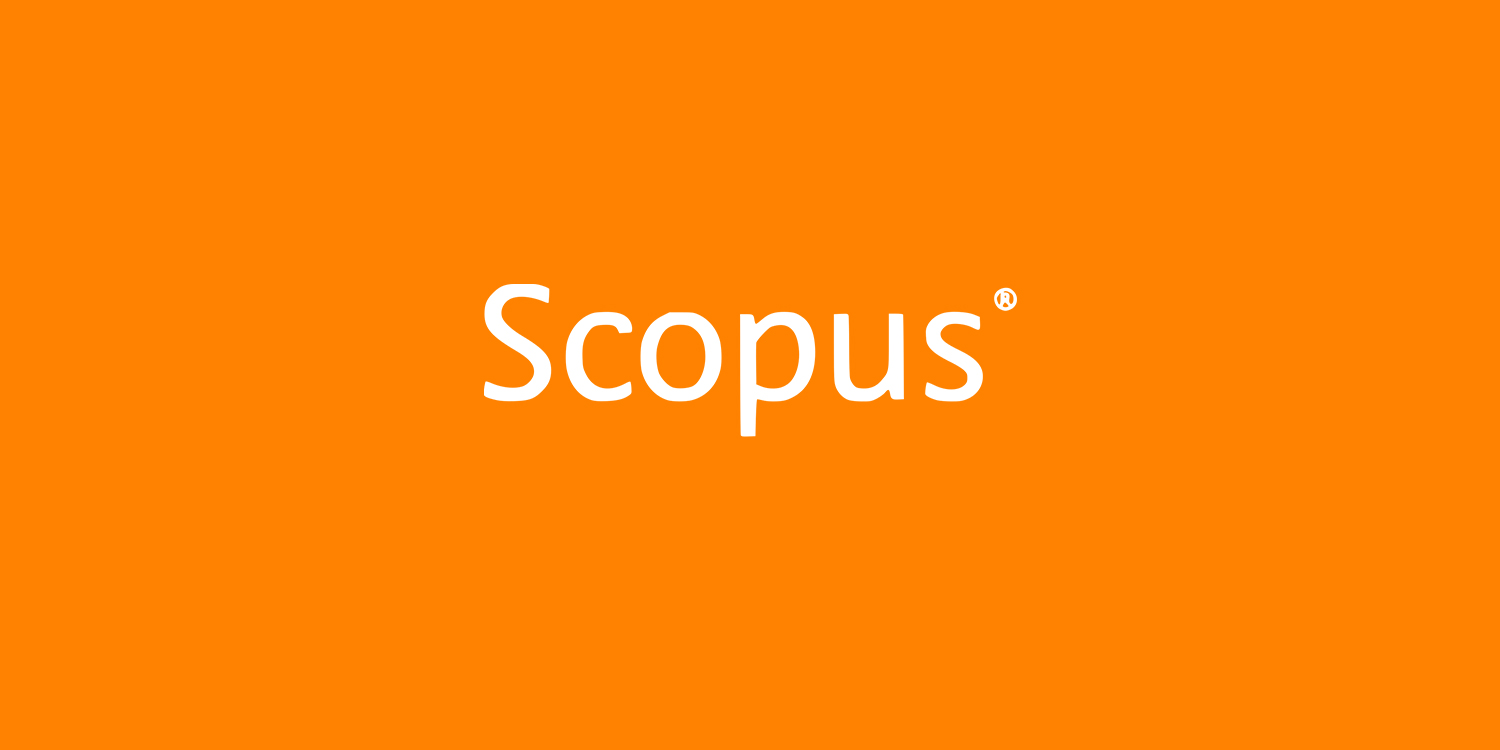Evaluation of the originality of manuscripts in a scientific journal
The Antiplagiat company invites editors and publishers of scientific journals to take part in the online seminar “Not a Single Percentage. Evaluation of the originality of manuscripts in a scientific journal”.
During the event, it is proposed to discuss topical issues of controlling the originality of manuscripts and collectively formulate criteria that will make it possible to realistically assess the legitimacy of discovered borrowings and avoid a formal "percentage" approach.
Date of the online seminar: March 15, 2022
Start of the online seminar: 11:00 (Moscow time)
Participation conditions: free
Pre-registration required: https://events.webinar.ru/1176571/10540981
Participants will receive a personalized electronic certificate!

Elsevier updated the list of Russian and Belarusian journals indexed in Scopus
Scopus is one of the largest scientific citation databases, which indexes the highest quality scientific publications selected by experts according to international standards. The inclusion of a journal in Scopus is an opportunity to increase its visibility and credibility for the global scientific community.
In 2021 the Scopus collection was replenished with 84 journals from Russia and Belarus. An updated list of Russian and Belarusian journals indexed in Scopus is available on the website.
Belarusian journals in Scopus:
Computational Methods in Applied Mathematics (ISSN:1609-4840)
Journal of Applied Spectroscopy (ISSN: 0021-9037)
Journal of Engineering Physics and Thermophysics (ISSN:1062-0125)
Journal of Friction and Wear (ISSN:1068-3666)
Novosti Khirurgii (ISSN:1993-7512)
Nonlinear Phenomena in Complex Systems (ISSN:1561-4085)
Psychiatry, Psychotherapy and Clinical Psychology (ISSN: 2220-1122)
Kardiologija v Belarusi (ISSN: 2072-912X)
Energetika. Proceedings of CIS Higher Education Institutions and Power Engineering Associations (ISSN: 1029-7448)
Proceedings of the National Academy of Sciences of Belarus, Medical Series (ISSN: 1814-6023)
Proceedings of the National Academy of Sciences of Belarus. Physics and Mathematics Series (ISSN: 1561-2430)
Proceedings of the National Academy of Sciences of Belarus, Chemical Series (ISSN: 1561-8331)
Oftalmologija. Vostochnaja Evropa (ISSN: 2226-0803)
Zhurnal Belorusskogo Gosudarstvennogo Universiteta. Matematika. Informatika (ISSN: 2520-6508)
Zhurnal Belorusskogo Gosudarstvennogo Universiteta. Istoriya (ISSN: 2520-6338)
Paediatrics Eastern Europe (ISSN: 2307-4345)
Reproductive Health. Eastern Europe (ISSN: 2226-3276)
Surgery Eastern Europe (ISSN: 2226-5384)
Laboratory Diagnostics. Eastern Europe (ISSN: 2226-5392)
Publishing in journals included in Scopus allows authors to promote their research results more effectively and increases the likelihood of their further use and citation as well.

Choosing a scientific journal to submit a paper: a guide for authors
The choice of a suitable journal for publishing a scientific paper is crucial for the authors since the chances for successful presentation of research results to the scientific community, promoting research results as well as the creating a favorable scientific reputation and even an increase in citation rates depend on it.
The selection process is becoming increasingly complex due to the significant increase in the number of journals (including interdisciplinary ones) as well as the emergence of unscrupulous publishers and predatory journals. Authors should take into account various criteria, factors and opportunities in order to optimize the search for a journal and unmistakably decide in what journal to publish their scientific works.
The new guidebook entitled “Choosing a scientific journal for publication” produced by the staff of the BNTU Scientific Library will help researchers to solve this problem most effectively.
The guidebook presents:
- Strategies and criteria for choosing a scientific journal;
- Indicators of the credibility of journals that you can focus on;
- Resources for selecting a journal;
- Signs of unfair journals and recommendations for journals integrity testing;
- Editorial policy and ethics of the publication process;
- Publication of research data;
- Useful links and information resources.

“International Open Access Week – 2021”: Striving for the Accessibility of Science
From October 25 to 31, 2021, the “International Open Access Week” is being held, which is named by the organizers “It matters how we get our knowledge: building structural justice”. The choice of this topic is related to the recently published UNESCO recommendations on public science.
Open science is designed to ensure equal rights of researchers from developed and developing countries, free exchange of scientific data, equal access to scientific knowledge of producers and consumers of scientific information regardless of their location, nationality, race, age, gender, financial status, socio-economic factors, level of education, language, religion, ability to work, ethnicity, immigration status, etc. It is assumed that the UNESCO recommendations will become a global system of standards in the field of open science and an effective guide to the practical implementation of public research at the government level.
The International Open Access Week is a format that brings together communities aimed at making accessibility and fairness the standard for research. The event is celebrated by individuals, institutions and organizations around the world.
The BNTU Scientific Library supports the concept of the development of open science and contributes to the development of open access. With the support of the library, the BNTU scientific journals portal operates, which hosts the websites of five peer-reviewed journals published by BNTU. All scientific journals of BNTU are open access journals. To improve the visibility of university journals for the world scientific community, they are all included in the world catalogs and libraries of open access resources, such as DOAJ, ROAD, OpenAire, CYBERLENINKA, etc.
The BNTU repository, which the Scientific Library has been forming since 2012, provides open access to educational and scientific materials of the university for a wide audience of users. In August 2021, the BNTU repository reached 39th place in the general list (All Repositories) of the world ranking of repositories “Transparent Ranking of Repositories” that included 4353 repositories, electronic archives, electronic libraries, and 29th place among 4200 other resources–in the list of institutional repositories (Institutional Repositories).
The Open Science section on the website of the BNTU Scientific Library is a navigator that reveals various aspects of open science and provides information on how to find publications on your topic in open access, where open research data is stored, which teaching materials of the largest universities in the world can be used, and others.
For informational support of lecturers, students and university staff, the Internet “Infogenerator” digest is regularly published, which contains thematic surveys of publications from the library's electronic collections compiled in accordance with the curricula, as well as open access resources and other useful materials. A special issue of the digest was dedicated to open educational resources.
For the high quality familiarization of users with modern information trends in the world scientific environment, the Scientific Library has developed and posted the following resource guides on the website:
- “Patent Retrieval”, i.e. the guide that provides information in the field of intellectual property protection, strategies, resources and search tools;
- “Preprints”, i.e. the guide that provides information on the role of preprints in modern scientific communication, on specialized servers and international initiatives dedicated to preprints, on the possibility of placing a preprint in the BNTU repository;
- “Scientific Information Retrieval”, i.e. the guide that describes opportunities, tools and resources for the scientific information retrieval, including open access resources to scientific publications and data.
Open access provides a significant impetus for more effective development of science, provides equal opportunities for all interested groups of researchers, contributing to the fair dissemination of knowledge and cooperation in the global scientific community to solve urgent and essential problems.

Updated list of Russian journals indexed in Scopus
The collection of publications indexed in Scopus continues to be replenished by Russian journals. Since the beginning of this year, 58 journals have been approved by the Expert Council for the Selection of Content for inclusion in Scopus. Thus, 692 active Russian journals are already represented in the Scopus database.
The updated list of Russian journals indexed in Scopus is presented on the website.
The list of Belarusian journals indexed in the Scopus database can be found at the link.

Page 8 of 9
